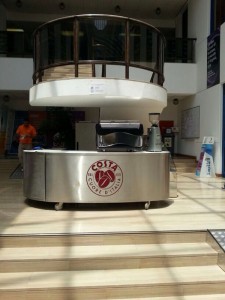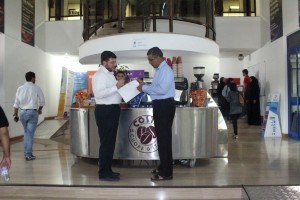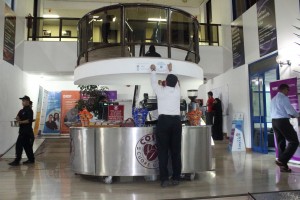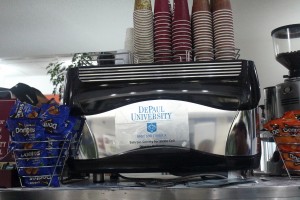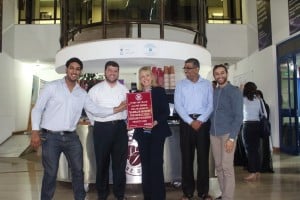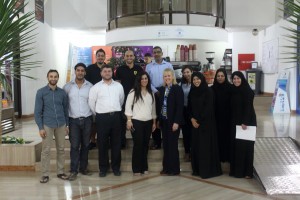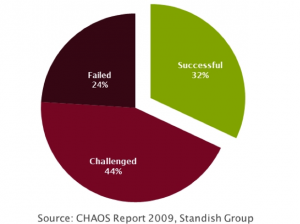Our project was to sponsor a Catering Company at BIBF for few days to support a charity in Bahrain. We have considered some options for the charity we wanted to raise awareness of and the same for the coffee shop we wanted to make the deal with.
We were thinking about two charities, this first was “Bahrain Society for Sickle Cell Disease Patients” and the other charity was “Bahrain Cancer Society”. We decided first to contact “Bahrain Society for Sickle Cell Disease Patients” because of the increase in death among their patients in this year comparing to couple of years back. We had a good response from the society and agreed to work together.
Also we put some options for selecting catering company or coffee shop and started communicating with some of them like COSTA Coffee, American Bagel, and Al-Abraaj Restaurant. In addition to communicating to these companies we had a backup plan of dealing with the local cafeteria in BIBF in case we could not manage to agree with one of them.
We managed to get to an agreement with COSTA Coffee and Al-Abraaj restaurant, but we decided to go with COSTA only because of the time constrain.
We have created the project plan using Microsoft Project software and assigned the tasks between us, below are some of the tasks:
- Searching for catering company, and make a deal with it.
- Searching for Charity.
- Get a required approval from BIBF and other if needed
- Arrange meeting between Sponsoring Company and BIBF to make a setup and discuss their requirement and provide all facilities they need.
- Arrange for meeting with charity society to discuss their input in project
- Follow up the Coffee shop installation
- Media cover, and informing the BIBF student and Staff about the project.
- Closing the project
We think the main reason behind our success in the project is defining our goal and put a plan for conducting the project, distributing the task according to the capability of team member, following the project at different stages, have a conference call at each stage to discuss the difficulties we face.
There were many challenges in our project, starting from the limited period we have to do the whole project which was around 2.5 weeks only and which was not negotiable, and the fact that we are one of the smallest teams (4 members), ending to the fact that the regulations in Bahrain restrict fund raising without a prior approval which normally takes one month to obtained!
We believe we did good work regarding creating awareness about the society between the students in BIBF considering the number of booklets distributed. But on the other hand the funds generated from this project were not up to the expectation.
Our advice for any team doing similar projects are:
- Take enough time in planning, but don’t over plan, especially when your total project time is very limited.
- Make your estimation according to real figure.
- Conduct survey/questioner before start.
We learned a lot of lessons from this project:
- There is big gap between science and art in project management
- Define goal, very important to success the project.
- Assign tasks to the members with right skills.
- Main reason behind success of project is your team.
- The team should know the goal of project to make it succeed.
- Relationship between the project manager and project team should be strong enough.
Setting up COSTA mini branch
After setting up COSTA

Putting Project name stickers
Team members with Prof.
Team members with class mates, Prof, and our guest speaker.
